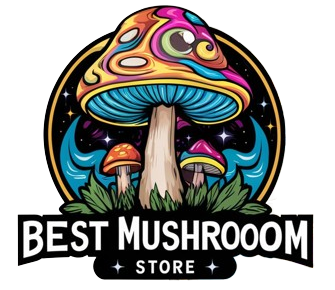Any mycological society will always approve of a solid mushroom identification key. Why? It’s a tool that helps to recognize the species of fungus. Here’s what a mushroom identification key is exactly, and what it is based on. Read on!
The Dichotomous Key
A dichotomous key is a tool that can be used to identify unknown organisms. It works by using a series of questions that can be answered yes or no. With each question, the number of possible options is reduced until the organism can be accurately identified.
Dichotomous keys can be used to identify a wide range of organisms, including plants, animals, minerals, and even viruses. They are often used by scientists and students as a way to quickly and accurately identify an unknown specimen. While they can be very helpful, it is important to remember that dichotomous keys are only as accurate as the person using them. If a key is not used correctly, it is possible to incorrectly identify an organism.
The Mushroom Identification Key
The mushroom identification key is a helpful tool for anyone trying to identify a mushroom. It works just like a dichotomous key.
It consists of a series of questions about the mushroom, which can be used to narrow down the possibilities. For example, the key might ask about the mushroom’s habitat, whether it has gills or pores, and what kind of surface it has. By answering these questions, you can usually arrive at the correct identification. The key sometimes contains descriptions, and characteristics of the mushroom. The mushroom identification key is an essential tool for any amateur mycologist.
Other Ways to Identify Mushrooms
Although a mushroom identification key can be a helpful tool, there are other ways to recognize mushrooms as well. One way to tell if a mushroom is edible is to look at the gills on the underside of the cap. Edible mushrooms typically have fleshy gills that are attached to the stem, while inedible mushrooms often have gill that are free from the stem or have spore-producing tubes.
Another way to identify a mushroom is by its habitat. Many edible mushrooms grow in wooded areas, near logs or stumps, while others prefer grassy meadows. Finally, it is important to be familiar with the most common types of edible and poisonous mushrooms in your area.
So, whether you’re an amateur or a member of a mycological society, the mushroom identification key is sure to help you with identifying process. Thanks for reading, and happy mushroom picking!
Similar Posts:
- Magic Mushrooms: How to Identify Magic Mushrooms and Types of Magic Mushrooms
- Can Dogs Smell LSD? Everything on Drug Dogs & LSD
- Panaeolus Olivaceus – Characteristics, Identification. Learn About This Fungus Named by F.H. Møller
- Adam Haritan on Foraging Wild Mushrooms
- Psilocybe Allenii Mushroom – Spore Print, Habitat, Identification
- Gymnopilus Aeruginosus – Species Information, Habitat & Morphology
- Psilocybe Baeocystis – Unusual Psilocybin Species. Identification, Potency & Characteristics


